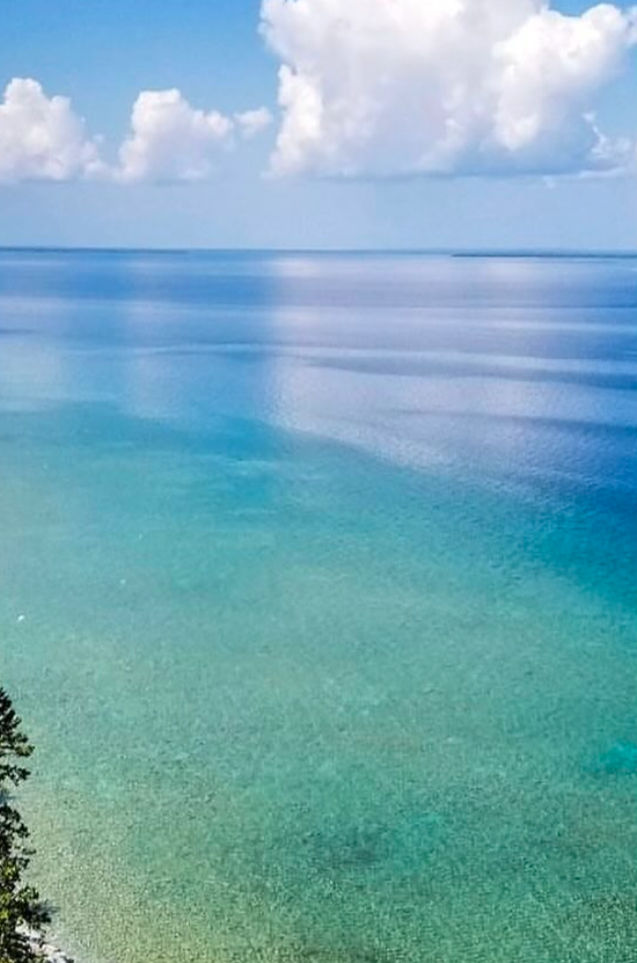Spearfishing the Great Lakes: A Sustainable Approach to Conservation
- greatlakesspeargun
- Dec 18, 2024
- 4 min read
Spearfishing is gaining popularity as a sustainable and eco-friendly fishing method, and the Great Lakes, with their abundant biodiversity, are a prime location for this practice. Spearfishing, unlike traditional fishing methods, focuses on targeting specific fish species, allowing for selective harvesting and minimizing ecological damage. In this article, we’ll explore how spearfishing in the Great Lakes can contribute to conservation efforts, promote healthier ecosystems, and ensure that these iconic bodies of water remain vibrant for future generations.
1. Spearfishing: A Selective and Sustainable Fishing Method
Spearfishing is often seen as a more environmentally friendly alternative to traditional fishing methods. Unlike commercial fishing or recreational angling, which can result in bycatch (the unintended capture of non-target species), spearfishing allows for a high level of selectivity. Spear fishers are able to target specific species, sizes, and individuals, ensuring that only the fish they intend to harvest are taken. This reduces the risk of overfishing and minimizes the impact on the ecosystem.
In the Great Lakes, spearfishing is typically focused on species such as northern pike, walleye and some invasive species. By selectively targeting these species, spear fishers help reduce the population of invasive fish, which can harm native ecosystems and fish populations.
2. Controlling Invasive Species
One of the most significant environmental challenges facing the Great Lakes is the presence of invasive species like the Asian carp and zebra mussels. These non-native species outcompete local fish for food and habitat, disrupting the delicate balance of the ecosystem. Spearfishing offers a unique advantage in controlling these invasive species.
By spearfishing, anglers can directly target invasive fish species and help reduce their numbers. For example, Asian carp are a growing concern in the Great Lakes region, and selective harvesting through spearfishing could play a role in limiting their spread. This form of active management helps preserve native fish populations and maintains biodiversity in the ecosystem.
3. Reducing Bycatch and Protecting Ecosystem Health
Traditional fishing methods such as gillnets and trawlers often result in significant bycatch, which harms non-target species like turtles, birds, and juvenile fish. In contrast, spearfishing allows anglers to avoid this problem entirely. By focusing only on the fish they intend to catch, spear fishers do not harm or disturb other wildlife in the process. This reduces unnecessary stress on the ecosystem and ensures that the aquatic food web remains intact.
In addition, spearfishing allows for better fish population management. Fish are caught individually, and this enables the angler to select mature fish while leaving younger ones to grow and reproduce. Over time, this helps maintain a balanced and healthy fish population.
4. Improving Water Quality
Healthy fish populations are vital to maintaining the water quality in the Great Lakes. By selectively removing overpopulated or invasive species, spearfishing helps to ensure that native fish species thrive, which in turn helps regulate algae blooms and maintain clearer water. Healthy fish populations contribute to the natural filtration processes of aquatic ecosystems, and removing invasive species can alleviate pressure on local habitats.
Moreover, removing certain species of fish that feed on smaller fish or plankton can help restore balance in the food chain, leading to healthier and clearer waters overall.
5. Supporting Local Communities and Eco-Tourism
Spearfishing in the Great Lakes isn’t just good for conservation—it also supports local communities. The ecotourism industry is growing, and anglers who practice sustainable fishing methods contribute to the local economy. Spearfishing trips, local gear shops, and eco-friendly businesses all benefit from the rise of responsible anglers who prioritize sustainability.
By engaging in spearfishing, local communities can foster a strong connection with the water, the fish, and the environment. This connection often leads to increased advocacy for conservation and better protection of the Great Lakes ecosystem.
6. Enhancing Awareness and Education
Spearfishing offers a unique opportunity to engage in hands-on conservation efforts. Anglers who practice spearfishing are often more aware of the ecological dynamics of the Great Lakes, including water quality, fish populations, and habitat health. Many spear fishers become advocates for sustainable practices and environmental protection after seeing firsthand the delicate balance that must be maintained to preserve the lakes.
Moreover, spearfishing organizations often engage in educational programs and awareness campaigns to promote responsible fishing practices. These efforts help spread the message about the importance of conserving the Great Lakes and inspire others to participate in conservation through sustainable fishing.
7. The Future of Spearfishing and Conservation in the Great Lakes
The future of spearfishing in the Great Lakes looks promising, with increased recognition of its benefits for conservation. As anglers, conservationists, and local communities work together, the practice of spearfishing is becoming an essential tool in preserving the health of the Great Lakes. Spearfishing offers a sustainable, eco-friendly alternative to traditional fishing, and its positive impact on controlling invasive species, reducing bycatch, and supporting local economies makes it an important practice for the long-term conservation of these incredible ecosystems.
Conclusion
Spearfishing the Great Lakes provides a sustainable, effective approach to preserving these vital ecosystems. By selectively targeting species, controlling invasive fish populations, and reducing bycatch, spear fishers are playing an important role in conserving the natural balance of the Great Lakes. As this practice continues to grow, it is essential for anglers and conservationists to work together to ensure the health and longevity of the Great Lakes for future generations. Through responsible spearfishing, we can help safeguard these majestic waters while supporting both ecological and economic sustainability.








Comments